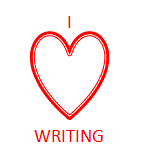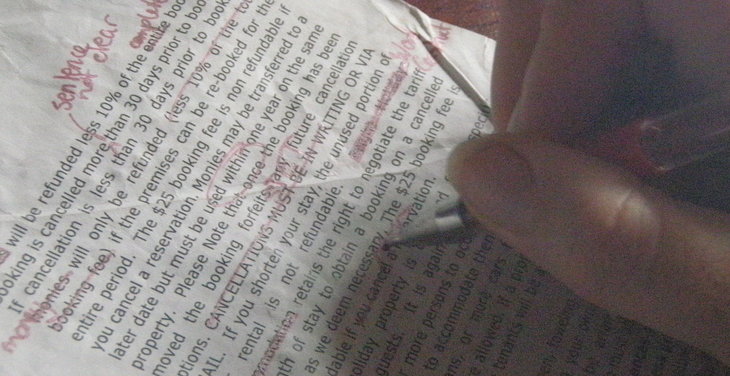I hope you find my writing and business tips and observations useful. My business and blog are dedicated to helping businesses communicate clearly and reach their potential.
Read, subscribe to my newsletter, enjoy!Tash
Writing and grammar: Valentines Day is almost here
It is February and we’re almost at Valentines Day. 
Personally, I don’t care about the commercialism of the day. I consider it a reminder to acknowledge those people we care about, both romantically and otherwise, in a way we probably don’t think of throughout the year.
I aim to send a note, letter or email to people close to me for Valentines Day, just so they know I care all year, even when I forget to tell them.
For those romantically inclined, I wrote an article on writing love letters, and another on how to present love letters in a special way. I also wrote a number of Valentines articles for Save Time Online, including Valentines ideas for singles!
Writing Valentines Day
And for those interested, Valentines Day, Valentine’s Day and Valentines’ Day are all grammatically correct! It depends which grammar rule you believe is more important as to how you write the word!
Valentines Day – the name of an event, such as Good Friday or Christmas Day
Valentine’s Day – the day owned by or relating to Valentine
Valentines’ Day – the day owned and celebrated by valentines (lovers) everywhere
The same answer applies to Mothers and Fathers Day, too.
So what is your preference for writing Valentines Day? Is that just what feels right or have you thought about what is ‘correct’?
A funky gift is nice without sending inappropriate romantic messages!
Check your titles
I saw some You Tube videos this morning with my son and one stood out for all the wrong reasons.
As the video started, a title screen showed “Here’s are friend”. After rereading it, I decided it was meant to be “Here’s our friend” and the lyrics within the following video confirmed my assumption.
The associated description included some more gems, such as “go’es” and “cellerbrate” and “there” instead of “their”.
In this case, it was not a business and professionalism probably wasn’t a major concern for the video poster. However, if you are going to the trouble to make a video and put it online for people to view, surely it’s worth the time to get the title correct?
Errors in content are not desirable but major errors in a title destroy credibility and may prevent anyone moving beyond the title so having good grammar and spelling in a title is important.
Have you seen poorly written titles that stopped you using that resource (document, video, etc)?
Spelling premier
premier (adjective): first, especially for rank, time and importance
They supply only the premier business resources.
premier (noun): a political leader of prominence
Each Australian state has a Premier.
premiere (noun): the first public performance, usually relating to a play, music or movie
He was very excited to be invited to the premiere last week.
While premiere is very specific, the word premier can be used a number of ways – the adjective premier could even be use to describe the first performance although accepted usage indicates premiere as the preferred option.
repeat the boring stuff…
Do you get bored with hearing the same stuff a number of times? What do you do about repeated information?
As I wrote a few days ago, some repetition of stuff is necessary to succeed – either because it takes a few goes to really understand it or the timing wasn’t right initially or even just as a reminder that it is still important.
I agree with Jack that looking professional is important – and that includes care with grammar, spelling, effective links and care of details. So I write about those topics quite often, which may seem boring to some I know, but I do try to cover a range of topics within clear and professional communications.
Given the amount of poor writing I come across every day, I see there is a need for a repetition of grammar and spelling tips, too!
If you are good at grammar and spelling – my apoliges for repeating what you already know! But why not take this opportunity to tell me what other topics you would like me to write about?
Once could be an error…
As much as I advocate being careful with spelling and grammar, everybody is human and mistakes will be made. So I can excuse an error.
It is much harder to excuse a document or website that makes the same mistake more than once. I came across this sentence a little while ago:
“Informing you super fund of a change of address is just as important as informing you bank.”
Using you instead of your is one of those things done easily enough (spell check won’t pick you as wrong) but really annoys me. Seeing it twice in that sentence just tells me the writer doesn’t understand the difference between you and your or just doesn’t care about being professional or making a good impression.
Two errors in that sentence would also make me less forgiving of other mistakes in the same document so it goes further than two missing letters.
How about you – do you also cringe when you read (or hear!) about ‘you object’?
Their names are precious
Did you know that someone’s name is one of the most precious words to them?
If you don’t believe me, think about how you feel when you are ‘treated like a number’, someone pronounces your name poorly and you get a letter with your name wrong in some way.
I once got a letter that referred to Mr T Hughes, opened with Tash and had Mrs Hughes on the envelope. I didn’t like being called Mr but the lack of care shown by the inconsistency was very poor.
Getting people’s names right is a sign of respect, and in business it also shows attention to detail matters to you. So consider the following tips:
- check the spelling of someone’s name before you send a letter or email – and use their spelling even if you don’t like it
- personalise where possible – if sending a letter or email, consider adding their name to the subject and/or body as well as in the opening line
- think about what form to use – title and surname or just first name for instance will depend on your audience and your business style. Note if they have shown a preference for one style then make sure you use that style.
- if you are not sure of gender from the name, avoid using terms that indicate gender as getting it wrong can be offensive
- never make fun or joke about someone’s name, even if you think you have a friendship, unless they have done so first – even then I would hesitate before joking about their name
- wait to be invited to use a nickname or abbreviation. So many people meet a Michael or Jonathon and start saying Mike and Jon, but if Michael hates Mike it will not impress him at all. Besides, nicknames are personal and often reserved for friends
- ask how to pronounce their name if you are not sure – people don’t mind helping but may resent errors
- do your best to remember names, especially at networking events or if a client introduces you. There are many techniques for improving your name memory and it is a valuable skill to have
PS On a humorous note, I received a phone call a few days ago where the person asked “Is that Mr Tash Hughes” (badly pronounced)
I answered “No” thinking – do I really sound like a Mr?
Next question “Can I speak to Tash Hughes?”
My answer “You are – I am Tash but I’m not Mr.”
“Oh, I thought you were a boy, Goodbye” and hung up!
Proofreading tips
 Ok, proofreading is boring – not many people actually enjoy the thought of reading their work over and over again to find errors. It’s a bit better proofreading someone else’s work, but most people still don’t want to do it.
Ok, proofreading is boring – not many people actually enjoy the thought of reading their work over and over again to find errors. It’s a bit better proofreading someone else’s work, but most people still don’t want to do it.
However, like many things in business and in life, it is necessary.
Necessary that is if you want a professional finish to your written materials.
So here are my tips to make it as easy and painless as possible:
- hire a proofreader! Ok, I added this point for fun as a plug (yes i can proof read and edit for you!) although it is a valid option
- get someone else to read it for you – fresh eyes are more likely to spot errors and other issues
- use a spell check to find the obvious typos (e.g. teh and yuo) BUT do not rely on it alone as it will not pick up the wrong word (e.g. know and now are both real words) and may not use your local or preferred spelling (e.g. color vs colour)
- leave as much time as possible between writing/editing and proofreading (or subsequent rounds of proofreading) – a few days is ideal but overnight is a minimum. If time really is short, do something else in between so your mind has ‘forgotten’ some of the details
- read it out loud – your tongue often trips over things your eyes would accept
- read it backwards – that way you will read the actual words instead of the sentences so spelling errors are more obvious
- print it rather than read it on a screen – not only is this easier on your eyes, it gives a different visual perspective and you can even read it away from your desk. I find curled up on a couch is great for editing printed documents…
- change magnification of the text – seeing it bigger sometimes makes words stand out more
Some tips will suit you more than others, some will be more appropriate for particular documents, too. However, using a range of techniques (especially for more important documents) will help you achieve a higher quality document.
Bolt of lightning
Thunder bolts and lightning, very very enlightening…
Sorry to play with some great lyrics, but the word lightning always makes me think of that song! Apparently, a number of people don’t realise that there are two versions of the word lightning/lightening – that is, there is one sound for the word but two spellings and meanings. Given people don’t realise there are two spellings, I guess it isn’t surprising to see the incorrect word used.
So here are the definitions of the two words to make sure you know which is which!
lightning: a sudden burst of light in the sky
The lightning storm was exciting and beautiful to watch
lightening: to make lighter or brighter
The sky was lightening on the horizon as we arrived home.
I am looking forward to lightening my load!
Lightning in the sky is fast and sharp – there is no time for extra letters. Whereas lightening something involves some effort, it is a verb, so it has an extra e in the spelling and pronunciation.

Recent Comments